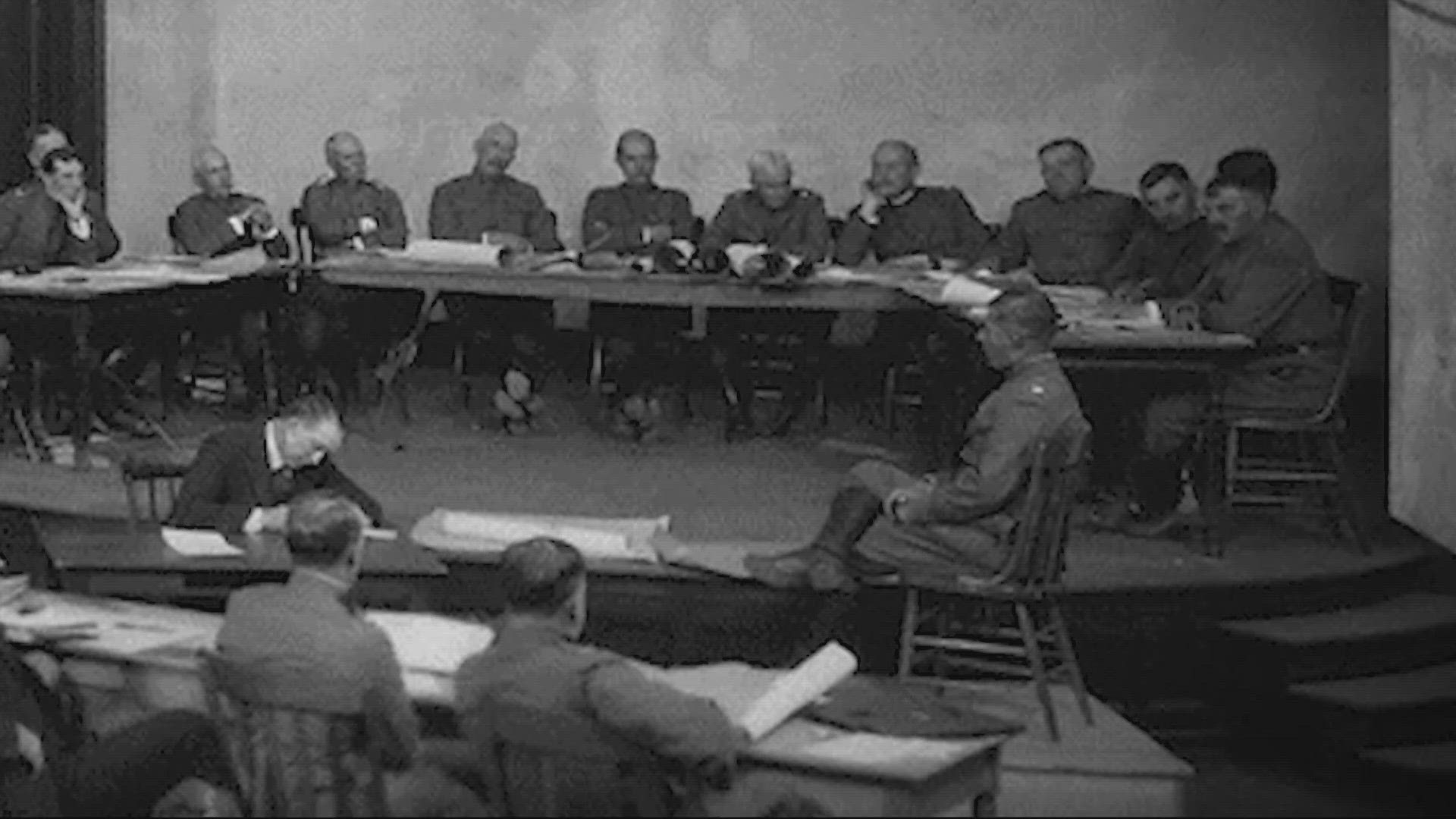HOUSTON — An event was held Monday to recognize the legacy of 110 Black soldiers convicted in the Houston Riots of 1917.
The U.S. Army was part of the event on Monday at the Buffalo Soldiers Museum in honor of the soldiers. The results of a clemency petition filed on behalf of the soldiers were announced. The U.S. Army put out a release, saying the convictions were being set aside.
Overturning the convictions was a historic move. It's one that some said is long overdue, but they're grateful for.
Houston Riots of 1917
The soldiers were dispatched to Houston to either intervene in turmoil with Mexico or fight in World War I. Many of those Black soldiers, who may have been from northern states, were not used to segregation.
In a 2021 interview with Dr. Gerald Horne, a history professor at the University of Houston, she said that a Black officer witnessed a Houston police officer being rough with and "manhandling" a Black woman, and when the officer tried to help, he was pistol-whipped by the cop.
That soldier went back to his troops who were stationed at Camp Logan in what’s now Memorial Park. Those soldiers became enraged and rioted. Sixteen people were killed. More than 100 Black soldiers were found guilty in the largest murder trial in American history.
Nineteen soldiers were executed by hanging, the largest mass execution of American soldiers ever carried out by the US Army.
Those soldiers were subsequently convicted in the riot. On Monday, more than 100 years later, those convictions were overturned.
Justice
The soldiers of the 24th Infantry Regiment waited more than 100 years for justice.
Gabe Camarillo, the under-secretary of the US Army, made the announcement on Monday.
"So, the Army has undertaken a process to restore their honor," he said. "Having reviewed all these cases, it was clear there was a miscarriage of justice. Due process wasn't followed and now we get to do something to set things right."
The legacies of those who were affected were honored at the Buffalo Soldiers Museum in Houston.
Their service records will now reflect that they served honorably. It's the reversal for which their families had been fighting.
Angels Holder's great-uncle was among those who were executed. She made it her lifelong mission to get Corporal Jesse Moore justice.
"This is just a day of relief for my family and I'm just very honored to be able to see this day. I didn't think it would come in my lifetime," Holder said.
It's a sentiment shared by Jason Holt, whose great-uncle, Private First Class Thomas C. Hawkins, was also executed.
"So, for us, his legacy is important because we stand on his shoulders," Holt said. "I hope his soul is at peace."
The Army said relatives of the soldiers could be entitled to benefits.

